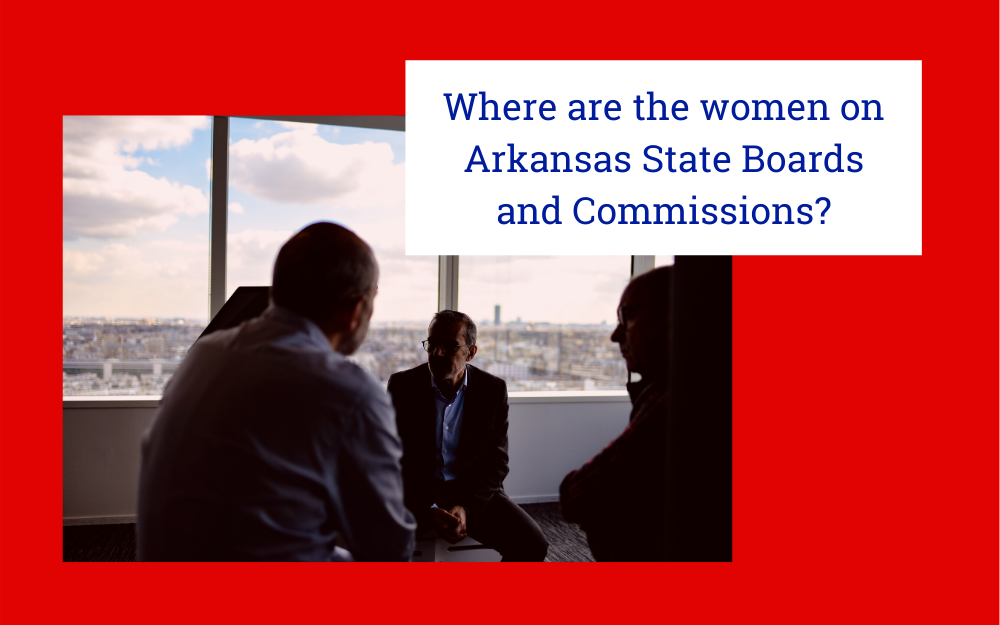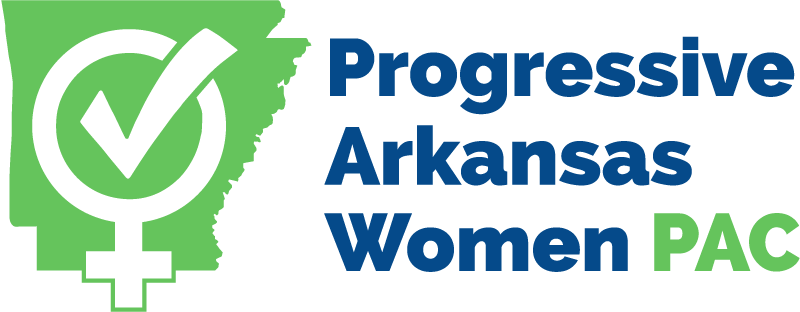
Arkansas boards and commissions are overwhelmingly male and always have been. Actually, they are overwhelmingly white male. According to Governor Hutchinson’s website, there are approximately 350 state boards and commissions. These are of varying importance, and the governor appoints most of their members. An analysis of the composition of 40 of these boards and commissions reveals that out of 434 total positions, only 151 are held by women*. That is 35%, which, of course, doesn’t come close to gender parity and isn’t representative of the state’s female population, which is 51%.
Some boards and commissions have no appointed members, only a director and staff. A few are predominantly women, which reflects that these boards or commissions are regulating professions dominated by women. The same can be said of boards or commissions that regulate male-dominated professions. These are all or overwhelmingly male.
However, there are anomalies. For instance, the Arkansas State Medical Board has 15 members, only 2 of whom are women with only 1 a physician, even though 28% of physicians in this state are women (one of the lowest percentages of any state).
Boards that do not regulate what are thought of as “female” professions are dominated by men. Boards considered the most powerful and prestigious are predominantly men. These exercise a lot of control over institutions, professions, and the everyday life of Arkansans. For instance:
- The University of Arkansas Board of Trustees has 10 members, only 2 of whom are women;
- The Arkansas Highway Commission has 4 men and only 1 woman (who incidentally has a double appointment as the sole female member on another board, the Medical Board);
- The Game and Fish Commission has 7 male members and 1 one woman;
- The Pollution Control and Ecology Commission has 13 men and a measly 2 women;
- The Highway Commission has 4 men and 1 woman;
- The Board of Health has only 6 women out of 24 positions;
- The State Board of Parks, Recreation and Travel has 14 men and only 3 women;
- The Arkansas Economic Development Council has only 2 women out of 16 members; and,
- The new Medical Marijuana Commission, which regulates a new industry involving potentially millions of dollars, has only 1 woman out of 5 members.
There are a few bright spots, where there is more inclusive board representation. For instance, the Pharmacy Board has 8 members, 5 of whom are women. This is as it should be as women make up the majority of pharmacists in the state. However, even though the percentage of women doctors is also increasing, the Medical Board fails to recognize this. Four out of the 5 positions on the Arkansas Ethics Commission are occupied by women. Query? Does this mean that government officials think women are more ethical?
The inevitable conclusion to be drawn from this survey is that the composition of these boards and commissions needs to change. There should be more women and also more women of color. And for that matter, there should be more men of color. Make no mistake, these governing bodies are powerful, and their influence is all-pervasive. They determine who is able to practice their profession in the state; they determine the policies of the institutions of higher education, including who gets and keeps tenure; they decide crucial issues involving our environment and our economic development. Yet they sorely lack people with diverse perspectives and experiences—people who really reflect the diverse population of this state.
This lack of representation will not change unless we elect more progressive women who will make this happen and unless this happens, the interests of women and people of color will continue to be under-represented. We must change this. We must elect progressive women to office.
These governing bodies are powerful, and their influence is all-pervasive. Yet they sorely lack people with diverse perspectives and experiences—people who really reflect the diverse population of this state.
*The 40 boards and commissions surveyed are: Advisory Council of the Arkansas Arts Council
Alcoholic Beverage Control Board, Arkansas Access to Justice Commission
Arkansas Agriculture Board, Arkansas Access to Justice Commission; Arkansas Ethics Commission
Arkansas Fair Housing Commission; Arkansas Humanities Council; Arkansas Oil and Gas Commission; Arkansas Psychology Board; Arkansas Public Defender Commission; Arkansas Real Estate Commission; Arkansas Rural Development Commission; Arkansas Social Work Licensing Board; Arkansas State Board of Dental Examiners
Arkansas State Board of Nursing; Arkansas State Board of Pharmacy; Arkansas State Claims Commission; Arkansas State Game and Fish Commission; Arkansas State Medical Board; Board of Trustees of Arkansas State University; Board of Trustees of the University of Arkansas; Keep Arkansas Beautiful Commission; Parole Board; State Board of Collection Agencies; State Board of Education; State Board of Election Commissioners; State Board of Health; State Board of Optometry; State Fire Prevention Commission
State Highway Commission; State Parks, Recreation and Travel Commission; State Plant Board; State Banking Board; Arkansas Motor Vehicle Commission; Arkansas Natural Resources Commission; Arkansas Natural Heritage Commission; Arkansas State Board of Architects, Landscape Architects, and Interior Designers; Arkansas Motor Vehicle Commission; State Board of Collection Agencies; Workers’ Compensation Commission.
